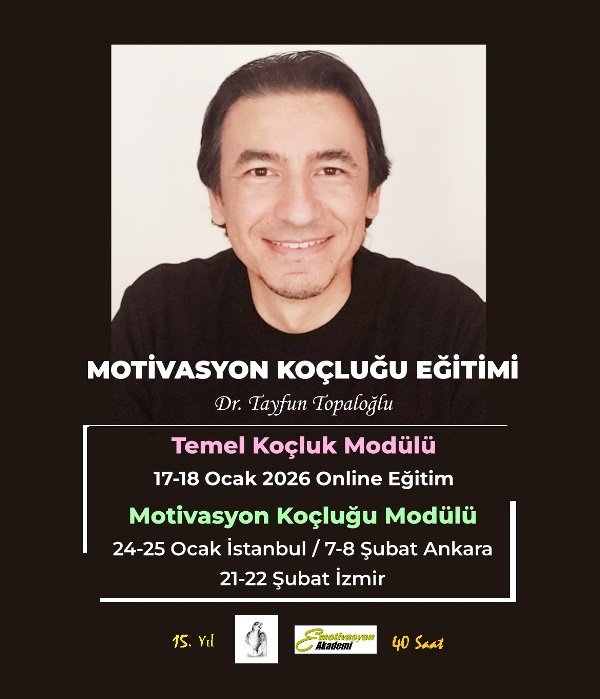The Fatal Dilemma of Rewarding: Does Giving Rewards Kill Intrinsic Motivation?
Edward L. Deci, a significant researcher in the field of motivation, observed through years of research that individuals' intrinsic motivation in a particular area weakens when they are given extrinsic rewards (such as money, gifts, praise). Intrinsic motivation is the internal satisfaction and pleasure one feels when doing something. This phenomenon is called the "overjustification effect." When an intrinsically motivated action is supported by an external reward, the individual begins to attribute their reason for performing the action to the reward, thus weakening their intrinsic motivation. This is a crucial issue for many people working in education, business, and sports. Edward L. Deci, in his intriguing book co-written with Richard Flaste, "Why We Do What We Do," supports this theory with research and explains it simply with the following story. . .
The Tailor and the Bullies
A group of bigots sent a few bullies to constantly harass a Jewish tailor who opened a shop on the main street, intending to drive him out of town. These bullies would come every day to mock the tailor. Although the situation seemed hopeless, the tailor was cunning. One day, when the hooligans came, he gave each of them ten cents for their efforts. Delighted, the bullies shouted their insults and left. The next day, they returned to shout again and waited for their ten cents. But the tailor said he could only afford five cents each and handed them five cents each. Slightly disappointed, they accepted the five cents and left after mocking him. The next day, they came again, and the tailor said he only had one cent for each of them. Angry, the bullies said they wouldn’t waste their time for one cent and left the tailor alone. Thus, everything turned out fine for the tailor.
This story is a great example of how rewards can kill intrinsic motivation. Initially, the bullies were intrinsically motivated and enjoyed mocking the tailor. However, when the tailor started rewarding them, their reason for this activity changed. They no longer did it for the pleasure of mocking but for the money. When the monetary rewards diminished and ceased entirely, they stopped mocking.
Think about the things you do in your life just because you enjoy them. It could be anything, hobbies, or simple activities related to a skill you’ve developed. If you started getting paid for these, would you really continue with the same enthusiasm and determination? Maybe at first, but eventually, the monetary reward would likely replace the intrinsic motivation. And ultimately, you’d realize that you’re not sufficiently motivated or eager because you’re not getting paid. You may have experienced this in the past and found it confusing. Now everything might make sense.
Points to Consider for Preserving Intrinsic Motivation
In today’s life, of course, money and other extrinsic factors are effective tools in motivating us for something. But this is not the important point. The crucial questions should be: How can we maintain our intrinsic motivation while getting paid? How can we ensure people enjoy their work or duties without making them dependent on money? Finding the answers to these questions might be the subject of another article. And it might be more appropriate to ask ourselves these questions and find individual answers. Let’s now look at how we can generally preserve intrinsic motivation.
- Emphasize Meaning and Purpose: Research shows that individuals have higher intrinsic motivation when they feel that their work is meaningful and important. Meaning and purpose enable individuals to be intrinsically motivated because they know their work holds greater value. Therefore, help individuals relate their tasks to a larger purpose. For example, explaining how a project contributes to society can increase individuals' motivation.
- Provide Autonomy: Autonomy is critical for intrinsic motivation. Autonomy allows individuals to make their own decisions and chart their own paths, which increases internal satisfaction and commitment. Therefore, give individuals freedom and flexibility in how they do their work. Create an environment where they can make their own decisions and take responsibility.
- Offer Opportunities for Growth and Mastery: Individuals have higher intrinsic motivation when they find opportunities to learn new things and gain mastery. Opportunities for development help individuals feel valued and competent. For example, you can support individuals by offering education and development programs. Give them challenging but achievable goals so they can constantly experience a sense of progress and accomplishment.
- Provide Feedback: Constructive and motivating feedback can increase intrinsic motivation. Feedback helps individuals understand and improve their performance, which enhances internal satisfaction. Therefore, it’s important to present feedback as growth-oriented rather than as a reward or punishment. Explain what they did well and where they can improve so they feel more motivated.
- Create a Supportive Environment: A supportive environment is a crucial factor that strengthens intrinsic motivation. An environment where individuals feel comfortable and supported helps sustain intrinsic motivation. It’s important to create a working or learning environment that provides emotional and social support. Individuals who feel appreciated and valued enjoy their work more and become more motivated.
In conclusion, according to Deci’s theory, humans are not passive beings motivated from outside but highly active beings who can motivate themselves. While rewards used to motivate them can increase performance in the short term, they can make them dependent and weaken intrinsic motivation in the long term. Therefore, particularly in areas that require intrinsic motivation such as learning, creativity, and problem-solving, external rewards should be used carefully. Individuals need to preserve their intrinsic motivation to feel happier and perform better in the long run. Hence, it’s beneficial to consider this information when rewarding both themselves and those they are responsible for.
Source: Edward L. Deci ve Richard Flaste (2023) Yaptıklarımızı Neden Yapıyoruz? (Çev. Selda Arit) İmge Kitabevi Yayınları, İstanbul






